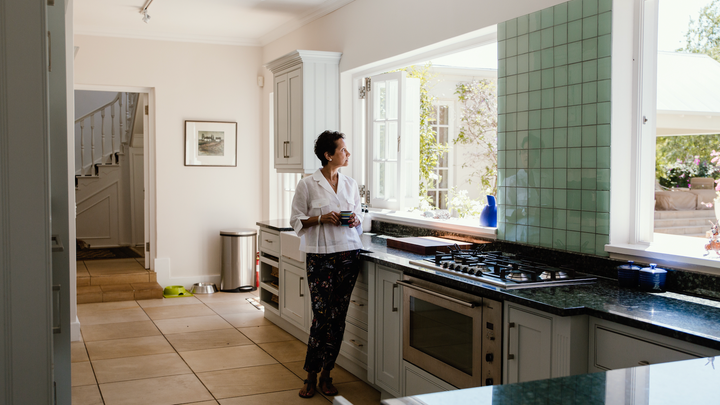Reducing carbon monoxide exposure in your space
Exposure to carbon monoxide (CO) can lead to CO poisoning, which can be fatal. Carbon monoxide alarms are designed to alert you of high levels of the gas.
We encourage every Host to understand the risks of CO exposure and install alarms to help keep guests safe. You can request one alarm from Airbnb if you have an active listing.
What is carbon monoxide?
Carbon monoxide is a colourless, odourless gas. Household appliances that run on fuel, such as furnaces, ovens, water heaters and portable generators, can produce CO. Charcoal and wood fires emit it too.
When CO builds up indoors or in other enclosed spaces, it’s poisonous to the people and pets who breathe it. High levels of CO exposure can be fatal. CO is not the same gas as carbon dioxide, or CO2, which is used in carbonated beverages and fire extinguishers.
Why install carbon monoxide alarms
Carbon monoxide is impossible to detect without an alarm. Installing one or more CO alarms can alert guests and others, including you and your family, if there are unsafe CO levels.
Ordinary smoke alarms do not serve as carbon monoxide alarms, but combination devices can be effective. Read the manufacturer’s label carefully when choosing one.
Carbon monoxide may be present if your space has any of these features or amenities:
Household appliances fuelled by coal, gasoline, kerosene, methane, natural gas, oil, propane or wood
Attached garage, even if your home has all-electric appliances
Generator in use near doors or windows
Gas or charcoal grill in use near doors or windows
Fireplace
Experts such as the International Association of Fire Chiefs recommend installing a carbon monoxide alarm on each floor of your space.
How you can help prevent CO exposure
The International Association of Fire Chiefs recommends taking these additional steps to prevent carbon monoxide exposure:
Test your alarms each month to confirm they’re working. Batteries typically need to be replaced every one, five or 10 years. Check the manufacturer’s date on the back of the alarm and the device’s manual for guidance.
Make sure your appliances are installed according to local regulations and their manufacturer’s instructions. Most fuel-burning appliances should be installed by professionals.
Get fuel-burning equipment cleaned and inspected regularly. Furnaces, ovens, dryers and chimneys or vents require regular attention. This helps ensure they’re working properly, ventilated sufficiently and free of cracks, rust or stains.
Routinely check the exhaust flues or ducts used by appliances like water heaters, kitchen ranges and clothes dryers to make sure they remain open and clear.
Fully open the damper or vent when using a fireplace or other wood- or pellet-burning heat source. Don’t close it until the fire is completely out.
Leave clear instructions for guests. Include detailed information in your house manual about how to safely use your space’s appliances and other amenities. Leave a printed copy where guests can easily find it, such as a central table or worktop.
Provide guests with emergency phone numbers for the local fire department, police department and nearby hospitals.
How to update your listing
Indicating you have carbon monoxide alarms helps show guests you care about their well-being. Add details about the alarms you’ve installed to the safety devices section of your listing. The information you provide will appear on your listing page and in emails to guests before they check in.
Guests searching Airbnb can also filter for listings with carbon monoxide alarms. Installing CO alarms and updating your listing may not only improve safety, but also may help you attract more bookings.
This article covers general safety guidelines and is not comprehensive. Please consider your property’s unique attributes and consult your local laws and fire experts.
Information contained in this article may have changed since publication.
